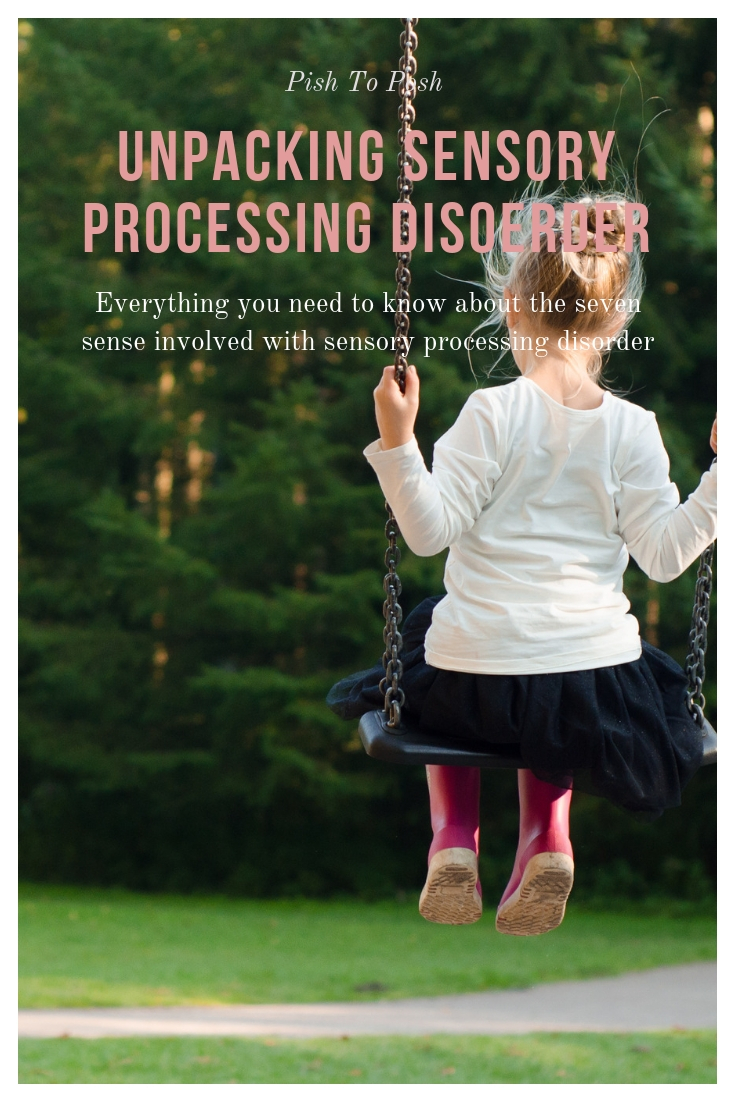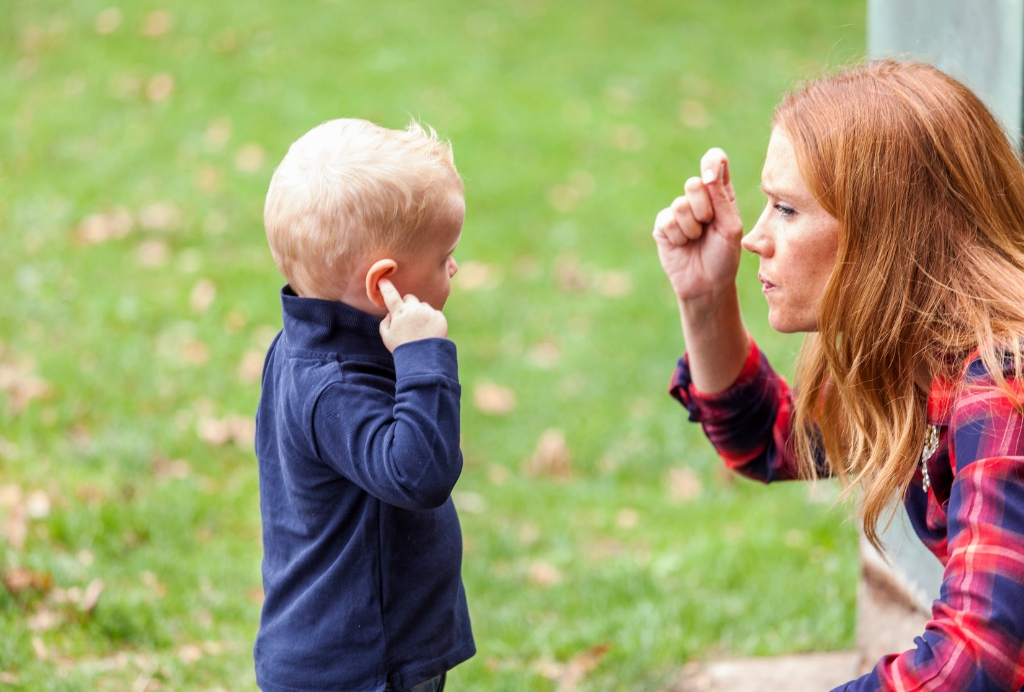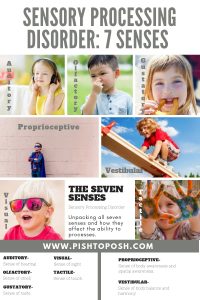Sensory Processing Disorder: Breaking It Down
Before we dive into this I need you all to know that I am not an expert on this topic- I have no degree in psychology or medicine. I am simply a mother who has a son with SPD. A mother who has done a lot of reading and research to help better understand my son. Yes, I am also a former special education teacher so I have additional knowledge on how differently wired children learn and function.
My hope is to break down sensory processing in a way that is easy to read and digest- save you some time in reading ALL the books! I have read them (well not every single one) and am so excited to share what I have learned.
Alrighty… let’s do this.

WHAT IS IT?
Sensory Processing involves the process of receiving and using information from your sense to make decision to act/think/feel a certain way. So, when one of your senses is wired differently, needs additional input (stimuli) or receives too much input we are challenged to take all the information and organize it correctly. Leaving us (or our children) with SPD.
Our kiddos brains are constantly seeking and digesting sensory information in order to keep their body regulated- this is normal. All humans do this. Kids with sensory processing disorder get those sensory triggers mixed up, are unable to categorize them, need more input in order to regulate or may need less input in order to regulate. Sensory processing disorder is not a neat and tidy disorder… it can be messy, intense, mild, sporadic, aggressive, manageable… the fact being it does not present the same for each kid.
OUR SEVEN- YEP- SEVEN SENSES
The fact that we have seven sense was one of the BIGGEST things I discovered through this journey. And the more I have read and observed my son I finally GET it. Now, your kindergarten teacher wasn’t wrong when she taught you the five senses; taste, touch, smell, sight and hearing. But in the land of SPD there are two “hidden” senses… proprioceptive and vestibular. For Declan the three sense that are most impacted are his proprioceptive, vestibular and gustatory (taste) senses.
THE NITTY GRITTY OF THE SEVEN SENSES
Proprioceptive
This is the body awareness sense. Think personal space and the ability to understand where their body is in relationship to other things. Do they bump into things? Have a hard time with motor planning sequencing? Want very tight and hard hugs, loves jumping and rocking?
Vestibular
This is the balance sense. Think being able to ride a bike, walk in a straight line and understand how their body functions while being upright. Can they spin around for hours and hours? Do they get scared in small spaces? Loves to rock back and forth, doesn’t like to be tipped upside down, can’t handle having their feet off the ground?
Gustatory
This is the sense of taste. Think the flavors, spices, textures and feel of food. Do they love a bold explosive flavor? Will they only eat hard or crunchy food; or maybe only eat soft and bland food?
Auditory
This is the sense of hearing. Think how loud or quiet sounds are, where the sounds are coming from, how many sounds are being presented at one time. Do they cover their ears at loud noises like the blender or firetruck sirens? Does it appear they never hear you when you ask them to do something if there is too many other sounds in the room? Are they calmed by music? Can they be easily upset by large spaces with bad acoustics?
Visual
This is the sense of sight. Think about how bright or dim lights are and the amount of stuff on the walls/bookcase/counters; the busyness of the room. Can you kiddo pick out items from a busy picture (like Where’s Waldo)? Are they able to deal with bright rooms or do they cover their eyes? How easily are they able to focus their attention when there is a lot going on around them, visually speaking?
Tactile
This is the sense of touch. Think texture, pain, temperature and feeling. Does your child respond inappropriately (either too much or too little) to pain? Can you child handle hair-brushing, the dentist, tags in clothing? Does your kiddo rub, touch and feel textured surfaces? Can they handle hugs and contact with others? Are they able to determine if something is too hot or too cold?
Olfactory
This is the sense of smell. Think perfumes, fragrances and aromas. Can you child smell something foul a mile away? Is you child able to distinguish between smells or does everything smell the same? Do certain aromas produce an extreme reaction? Does your child seek out fragrant rooms or experiences? Is your kiddo turned off or excited about foods that are very aromatic?
The tactile, proprioceptive and vestibular are refereed to as “the big three”. If these three are not doing their jobs correctly the other senses are not able to function correctly.
Below is visual graphic: click to download as a PDF. Hang it on the firdge, give it to grandparents and teachers. A quick reference! It is a reminder that there the sense are intertwined and all are involved in sensory processing disorder. In the middle you will see proprioceptive and vestibular and this was intentional due to the fact that the other five sense revolve around the two hidden senses. CLICK HERE TO DOWNLOAD
Unpacking the seven senses and starting to notice behaviors you see in your child is the first step in understanding SPD. Take note across different situations how your child responds to different types of stimuli. Using this as a guide you can begin to navigate the world of sensory processing and truly begin the journey to helping you child.
Taking the first step is sometimes the hardest. But once you are able to identify and/or hypothesize the sense that may be impacting your child(ren) it is much easier to move forward. Once you are able to identify some challenges in the sensory system we can really begin to see how those challenges impact their daily lives. And at the end of the day that is what matters most… what’s the impact? Or how are you seeing the sensory challenges manifesting in everyday life?
SENSORY PROCESSING DISORDER: THE IMPACT
(check out my next post) (I knew you were going to ask… hahahaha)
With Love,

The information I have acquired are from three main sources- all of which I HIGHLY suggest you check out for yourself!
The Everything Parents Guide to Sensory Processing Disorder by Terri Mauro
The Explosive Child by Ross W. Greene, Ph.D.
Star Institute for Sensory Processing Disorder– online resource center.
Additional Resources I am really getting into!
The Sensory Project Podcast
Tilt Parenting Podcast
Ted Talks


